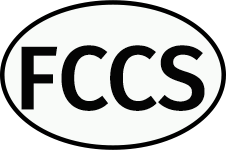We all have been there, sitting in front of our computer, waiting for it to boot up, load a program or respond to a command. It can be frustrating, time-consuming, and affect our productivity. As technology advances, we expect our devices to perform faster and smoother. However, the reality is that without proper maintenance, our computers can slow down over time. In this blog post, we will discuss the reasons why your computer may be slow and ways to speed it up.
Reasons why your computer may be slow:
- Outdated hardware: If your computer has outdated hardware, it may not be able to handle new software or applications. Upgrading the RAM, processor, or hard drive can improve the performance of your computer.
- Malware or virus: Malware or viruses can slow down your computer by consuming system resources, displaying ads, or stealing information. Running a virus scan or using anti-virus software can help remove these threats and improve the speed of your computer.
- Overloaded hard drive: If your hard drive is full, your computer may slow down as it struggles to access files and programs. Deleting unnecessary files, uninstalling programs, or upgrading to a larger hard drive can help alleviate this issue.
- Too many programs running: If you have too many programs running at the same time, your computer may slow down as it tries to allocate resources to each program. Closing unnecessary programs or upgrading your computer’s RAM can help improve its multitasking ability.
- Fragmented files: Over time, files stored on your computer can become fragmented, which means they are scattered across different parts of the hard drive. This can slow down your computer as it takes longer to access these files. Running a disk defragmentation tool can help organize these files and improve the speed of your computer. Note: You should never defrag an SSD.
Ways to speed up your computer:
- Clean up your computer: Regularly cleaning your computer can help remove unnecessary files, temporary files, and system junk that can slow down your computer. You can use built-in tools like Disk Cleanup or CCleaner to do this.
- Upgrade hardware: Upgrading your computer’s hardware can significantly improve its performance. You can upgrade the RAM, processor, or hard drive to speed up your computer.
- Use an SSD: Switching to a Solid State Drive (SSD) can significantly improve the boot time and overall speed of your computer.
- Disable unnecessary programs and services: Disabling unnecessary programs and services that start automatically with your computer can improve its boot time and overall performance.
- Keep your computer up to date: Updating your computer’s operating system, drivers, and software can improve its security, stability, and performance.
Conclusion: In today’s fast-paced world, having a slow computer can be frustrating and affect our productivity. By understanding the reasons why your computer may be slow and ways to speed it up, you can improve its performance and get more done in less time. Remember to regularly maintain your computer and keep it up to date to ensure it runs smoothly. If you need help with upgrading your hardware or optimizing your computer’s performance, feel free to contact us at First Coast Computer Services.
Other related articles:

